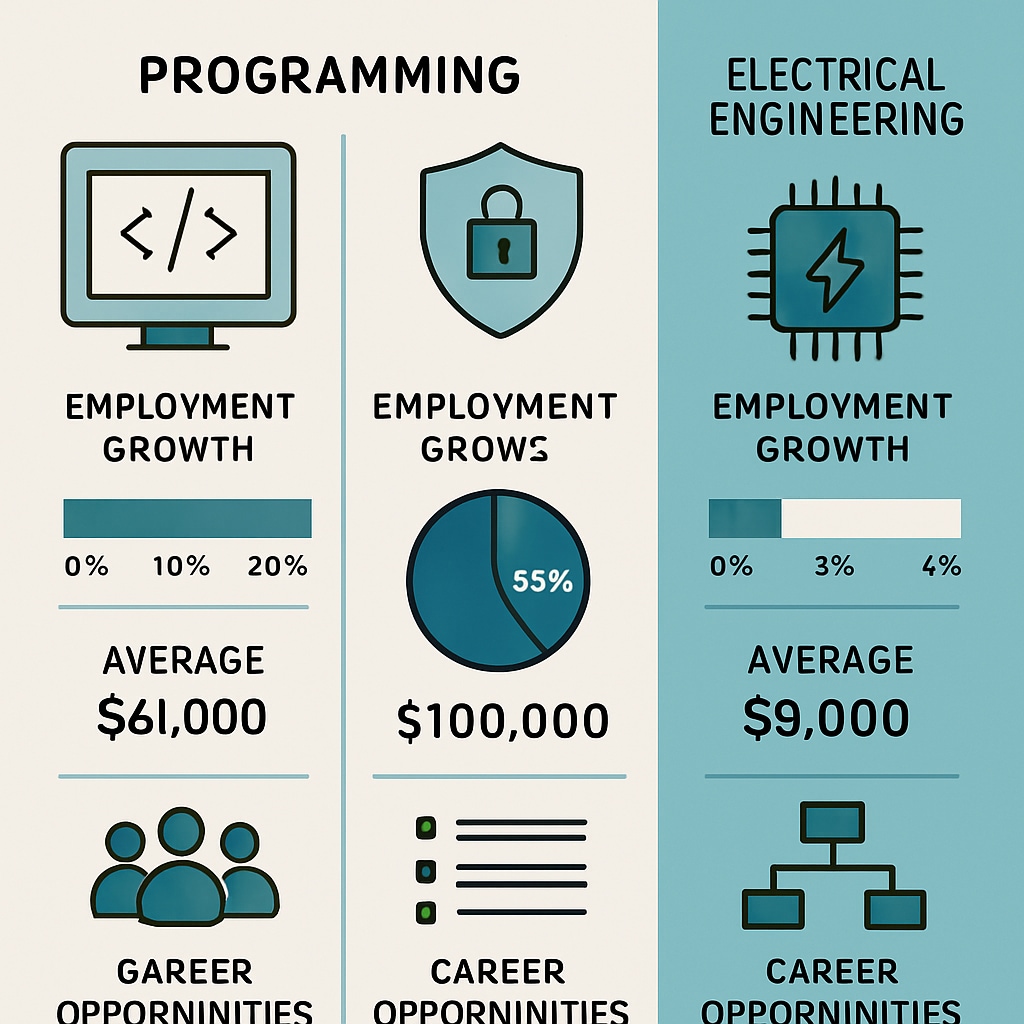Choosing the right university major can have a profound impact on your future career, especially in the rapidly evolving field of IT and technology. Whether you’re considering programming, IT network security, or electrical engineering, understanding your strengths and interests is key to ensuring a fulfilling career path. This article provides an in-depth analysis of various majors, their characteristics, and career prospects, offering practical tools to help you navigate your decision-making process.

Understanding Key IT and Technology Majors
To make an informed decision, it’s essential to understand the differences among popular IT and technology majors. Here are three prominent options:
- Programming: This major focuses on coding, software development, and computer systems. Graduates often pursue careers in software engineering or app development.
- Cybersecurity: A rapidly growing field, cybersecurity involves protecting digital assets, networks, and sensitive data from cyber threats. It offers roles such as security analyst or ethical hacker.
- Electrical Engineering: Combining hardware and software knowledge, this field covers topics like circuit design and robotics. It opens doors to careers in electronics and automation.
Each major offers unique advantages depending on your interests, skills, and long-term goals. For example, a programming major might appeal to those with a passion for creative problem-solving, while cybersecurity suits individuals interested in safeguarding digital systems.
How to Evaluate Your Strengths and Interests
Before choosing a major, it’s essential to assess your abilities and passions. Here are three self-evaluation strategies:
- Skill Assessment: Identify your technical strengths, such as logical thinking, attention to detail, or mathematical ability.
- Interest Exploration: Reflect on activities that excite you, such as coding, troubleshooting devices, or innovating new solutions.
- Career Research: Investigate potential roles in your chosen field to understand job responsibilities, growth opportunities, and salary expectations.
For additional guidance, consider using resources like career aptitude tests or speaking with academic advisors. For example, career assessment tools can pinpoint areas of strength, while industry reports provide insights into future job trends.

Career Prospects in the IT and Technology Sector
The IT and technology field boasts immense growth potential, with diverse career opportunities. Here’s a glimpse into the prospects for each major:
- Programming: Careers in software development are projected to grow significantly, with high demand for professionals skilled in languages like Python, Java, and C++.
- Cybersecurity: With the rise in cyber threats, the need for security analysts and ethical hackers is skyrocketing. Job stability and lucrative salaries make this field attractive.
- Electrical Engineering: From renewable energy systems to robotics, electrical engineers are essential for technological innovation and infrastructure development.
As a result, pursuing a degree in IT or technology can lead to success in highly rewarding careers. For further reading, consult resources like Britannica’s overview on information technology to understand the broader scope of the industry.
Making the Final Decision
Once you’ve explored the available majors, evaluated your strengths, and considered career prospects, it’s time to make a decision. Here are final tips to guide you:
- Seek Mentorship: Connect with professionals or university alumni who can share insights about their experiences in your chosen field.
- Consider Flexibility: Some majors, such as programming, offer transferable skills that can be applied across industries.
- Think Long-Term: Envision your ideal career and lifestyle, ensuring your decision aligns with your future aspirations.
Remember, the major you choose is an important step, but it’s not set in stone. Many students find opportunities to pivot their careers as they gain experience and knowledge.
By taking the time to carefully evaluate your options, you can select a university major in IT and technology that aligns perfectly with your interests and ambitions. The right choice will set you on a path toward a successful and rewarding career.
Readability guidance: Use short paragraphs and clear headings to improve readability. Incorporate lists to summarize key points and ensure transitions (however, therefore, in addition) are used effectively throughout the text.


